

Top companies trust Airbyte to centralize their Data







Select your source


Select your destination

Sync your Data
Ship more quickly with the only solution that fits ALL your needs.
As your tools and edge cases grow, you deserve an extensible and open ELT solution that eliminates the time you spend on building and maintaining data pipelines
Leverage the largest catalog of connectors
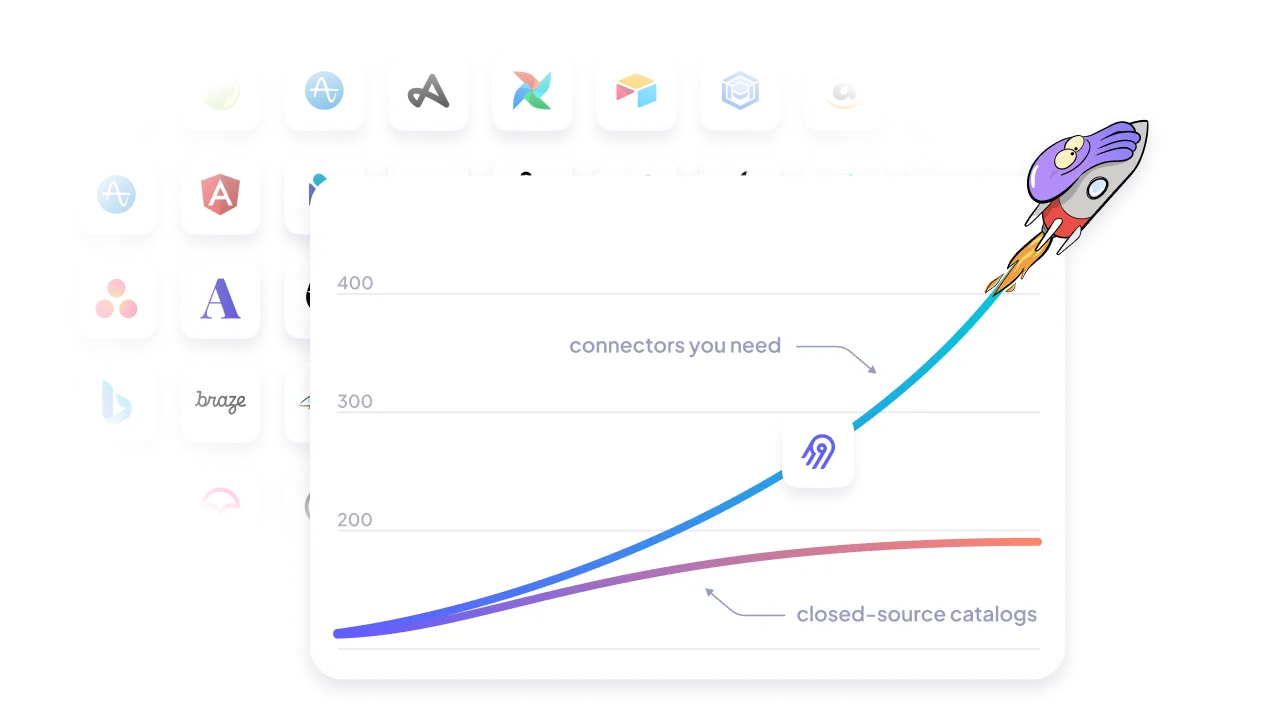
Cover your custom needs with our extensibility

Free your time from maintaining connectors, with automation
- Automated schema change handling, data normalization and more
- Automated data transformation orchestration with our dbt integration
- Automated workflow with our Airflow, Dagster and Prefect integration
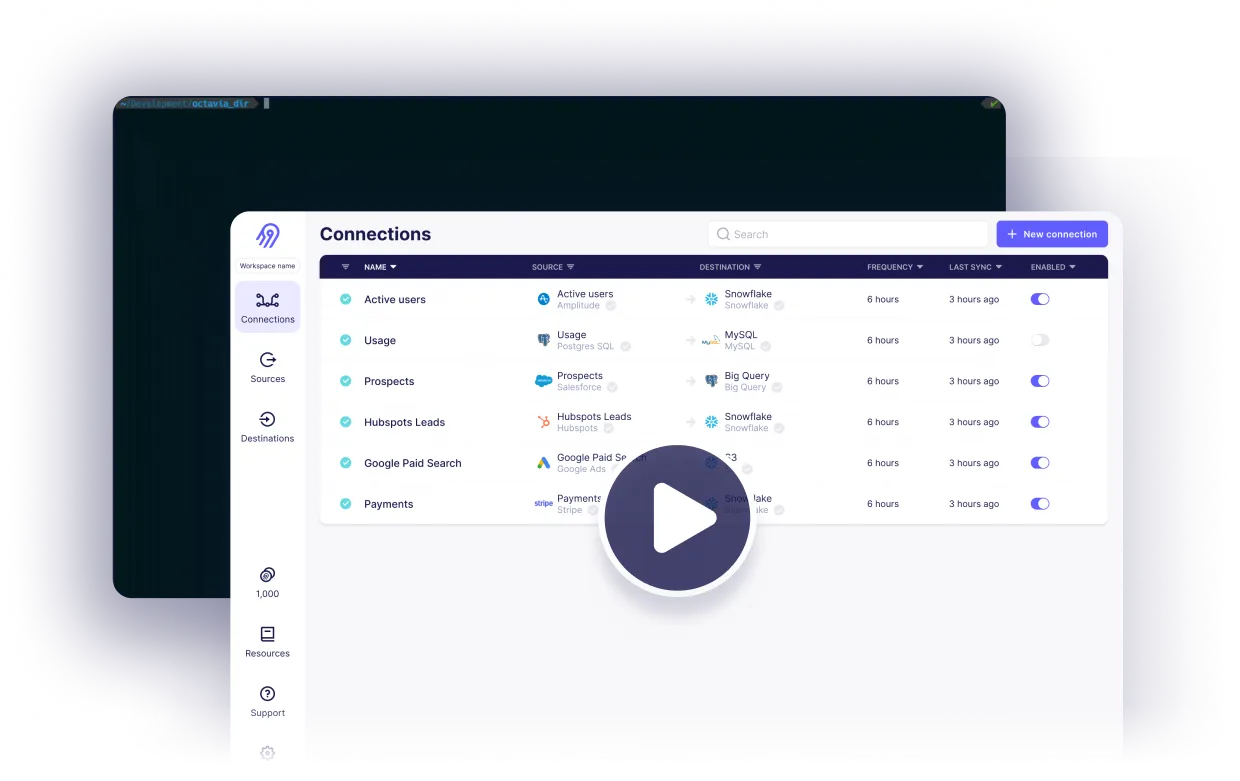
Reliability at every level
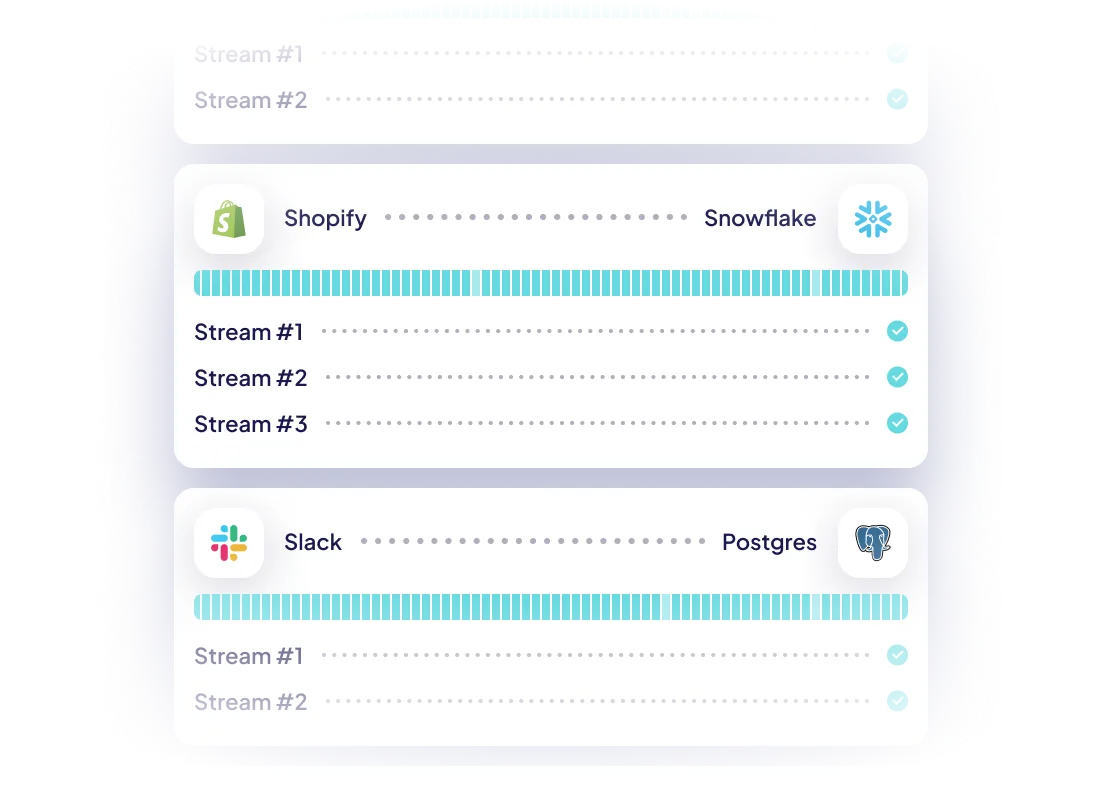



Airbyte Open Source


Airbyte Cloud


Airbyte Enterprise

Why choose Airbyte as the backbone of your data infrastructure?
Keep your data engineering costs in check
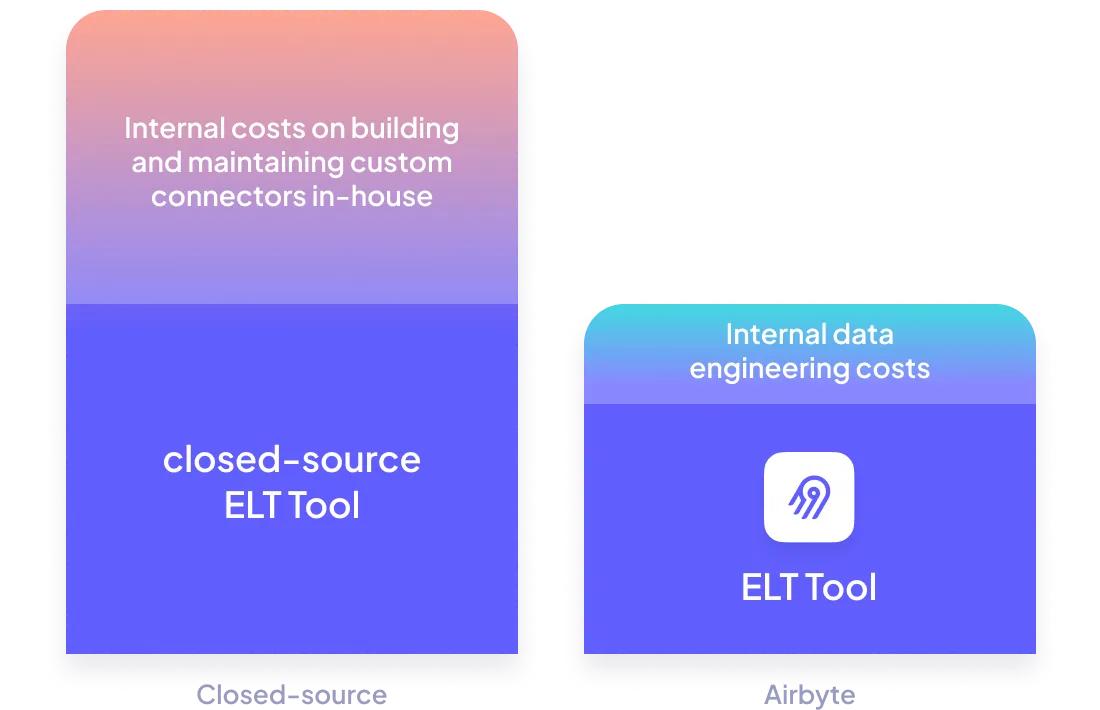
Get Airbyte hosted where you need it to be
- Airbyte Cloud: Have it hosted by us, with all the security you need (SOC2, ISO, GDPR, HIPAA Conduit).
- Airbyte Enterprise: Have it hosted within your own infrastructure, so your data and secrets never leave it.
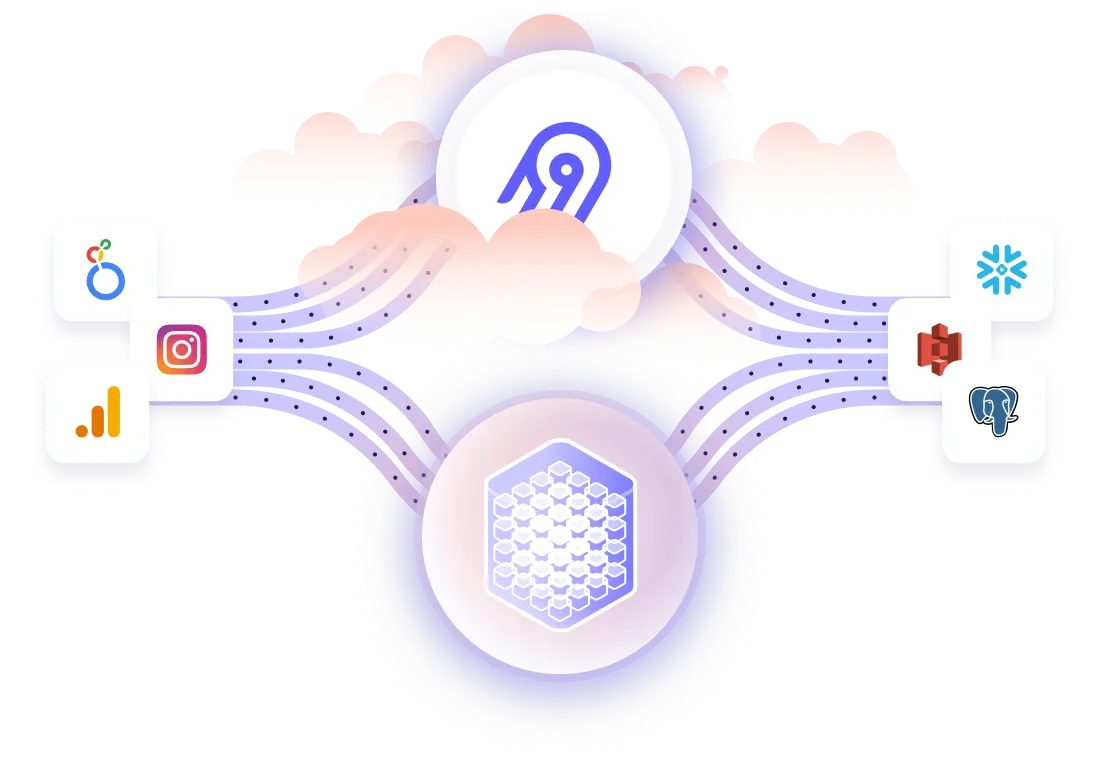
White-glove enterprise-level support
Including for your Airbyte Open Source instance with our premium support.
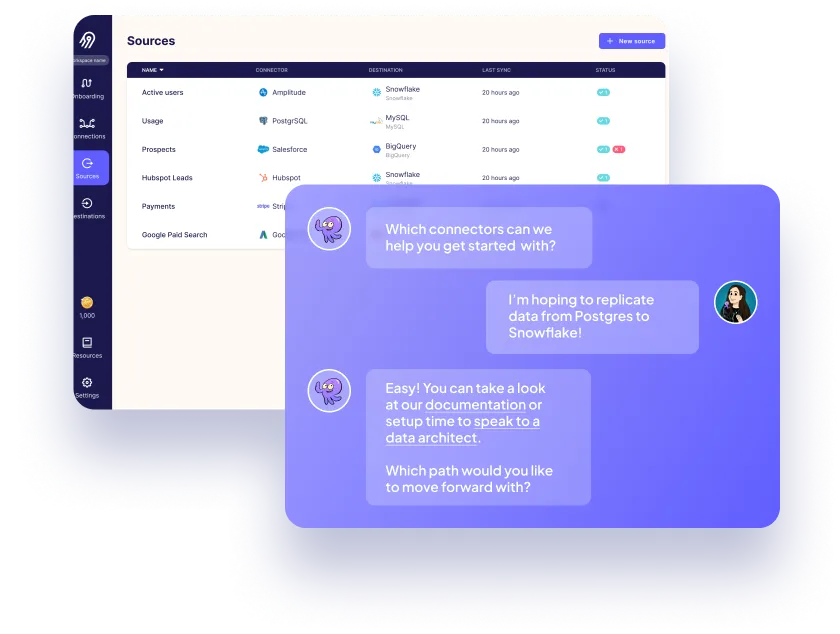

Fnatic, based out of London, is the world's leading esports organization, with a winning legacy of 16 years and counting in over 28 different titles, generating over 13m USD in prize money. Fnatic has an engaged follower base of 14m across their social media platforms and hundreds of millions of people watch their teams compete in League of Legends, CS:GO, Dota 2, Rainbow Six Siege, and many more titles every year.
Ready to get started?
FAQs
What is ETL?
ETL, an acronym for Extract, Transform, Load, is a vital data integration process. It involves extracting data from diverse sources, transforming it into a usable format, and loading it into a database, data warehouse or data lake. This process enables meaningful data analysis, enhancing business intelligence.
Apple Search Ads is a platform that allows businesses to promote their apps in the App Store by displaying ads to users who are searching for specific keywords. Advertisers can target their ads based on factors such as location, device type, and demographics. The platform uses a pay-per-tap model, meaning advertisers only pay when a user taps on their ad. Apple Search Ads also provides detailed analytics and insights to help advertisers optimize their campaigns and improve their return on investment. Overall, Apple Search Ads is a powerful tool for app developers and businesses looking to increase their visibility and downloads in the App Store.
Chargify is a billing and revenue management system for B2B SaaS companies that provides a SaaS billing solution to handle free trial periods, one-time fees, promotions, refunds, email receipts. It is a recurring billing and subscription management platform designed for subscription-based businesses which aims to end the billing bottleneck for Web 2.0 and SaaS companies, allowing them to easily launch new products. Chargify is a worldly-recognized leader in the Recurring Billing and Subscription Management space that turns billing into a competitive edge
Apple Search Ads API provides access to a wide range of data related to app advertising campaigns. The following are the categories of data that can be accessed through the API:
1. Campaign data: This includes information about the campaigns such as campaign name, status, budget, start and end dates, and target audience.
2. Ad group data: This includes information about the ad groups such as ad group name, status, bid amount, and target keywords.
3. Keyword data: This includes information about the keywords such as keyword text, match type, status, and performance metrics.
4. Creative data: This includes information about the ad creatives such as ad type, ad format, ad group, and performance metrics.
5. Performance data: This includes information about the performance of the campaigns, ad groups, keywords, and creatives such as impressions, clicks, conversions, and cost.
6. Attribution data: This includes information about the attribution of the app installs to the advertising campaigns such as source, medium, and campaign name.
7. Audience data: This includes information about the target audience such as demographics, interests, and behaviors.
What is ELT?
ELT, standing for Extract, Load, Transform, is a modern take on the traditional ETL data integration process. In ELT, data is first extracted from various sources, loaded directly into a data warehouse, and then transformed. This approach enhances data processing speed, analytical flexibility and autonomy.
Difference between ETL and ELT?
ETL and ELT are critical data integration strategies with key differences. ETL (Extract, Transform, Load) transforms data before loading, ideal for structured data. In contrast, ELT (Extract, Load, Transform) loads data before transformation, perfect for processing large, diverse data sets in modern data warehouses. ELT is becoming the new standard as it offers a lot more flexibility and autonomy to data analysts.





















